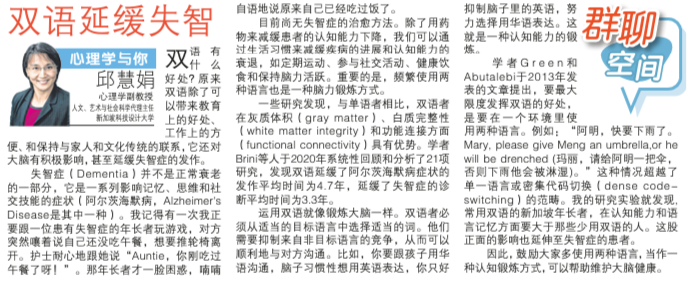Locally manufactured cleaning robots want to go global
Locally manufactured cleaning robots want to go global
05 Oct 2023

Lianhe Zaobao, 5 Oct 2023, 本地制造清洁机器人要扫遍全球(translation)
Married couple, Dylan Ng (47 years old) and Michelle Seow (44 years old), are experienced entrepreneurs. They founded SuperSteam Asia Pacific, a company that distributes cleaning supplies, in 2002, shortly after graduating from university. During their days in the cleaning industry, they witnessed the challenges brought about by the aging workforce and knew that they had to find solutions to change the current situation as soon as possible.
The couple then spent three years searching around the world, but could not find an effective, affordable, and reliable alternative. Just as they were about to give up on their search, a phone call changed their entrepreneurial path.
Dylan Ng shared in an interview with Lianhe Zaobao: “Dr. Mohan’s team called and said that they had converted the traditional cleaning machines sold by SuperSteam into robots and invited us to take a look.”
Dr Mohan Rajesh Elara (41 years old) is an associate professor at the Singapore University of Technology and Design. He has been studying the construction of intelligent cleaning robots. When he approached the entrepreneurial husband-and-wife team, he found that they had a like-minded vision for building cleaning robots locally. The three started the company together in 2018.
The concept of cleaning robots is actually not new. The company estimates that there are over 20 manufacturers of cleaning robots around the world. However, most cleaning robots are manufactured in China, whereas this company’s robots are entirely assembled in Singapore. The company’s factory is located at Kranji Green, an industrial building built by JTC Corporation.
Robot design is user-centered
Dr Mohan believes that one of the unique features of the robots developed by Lionsbot is that the products are designed with the user in mind.
He said: “Our user experience designers design based on the needs of users. For example, people who use the products are generally elderly people who may not be able to bend down for a long time or lift heavy objects. Therefore, from how to operate the robot to cleaning and replacing its parts, every step is ensured to be convenient for the elderly.”
For example, the robot will display different emoticons, such as different expressions when its battery is low and needs to be recharged or when certain parts need to be replaced, allowing the user to know the robot’s condition at a glance. Additionally, the robot has colour labels, for example, parts with blue stickers can be removed and cleaned.
Since its establishment, the company has produced more than 2,000 robots and received orders from 30 countries. Europe is the company’s largest source of customers, accounting for 50%, with the rest from Singapore, the United States, Canada and Japan. These customers mainly come from the retail, education, warehouse, hotel, medical and tourism sectors.
Insisting on local assembly to ensure high product quality
The cost of manufacturing robots locally is much higher than if it were manufactured in China, but Dylan Ng believes that being manufactured in Singapore is also a selling point of the company’s products. He said: “Assembling the robots locally gives us better control and helps us ensure that the products maintain a high quality. Costs will be reduced if a critical production volume is reached in the future.”
Dylan Ng said that the three founders of the company are all Singaporeans, and all of them hope to do their part to contribute to Singapore’s manufacturing industry’s move towards Industry 4.0.
The company’s experience in manufacturing robots locally can also inspire other robot companies and catalyse more similar companies to manufacture high-tech products in Singapore.
He pointed out that Singapore has the ability to build a stronger robotics ecosystem and follow the example of Silicon Valley in the United States, to create a Silicon Island here.
Regarding the company’s development pace, Michelle Seow said: “We are not starting from scratch. Before founding LionsBot, we had 15 years of experience operating SuperSteam and accumulated a certain customer base. Therefore, this start-up company has developed relatively rapidly. However, instead of being an agent, we are now the developer and manufacturer of the products, which is a new experience.”
Although the company has not yet reached its break-even point, it has achieved good results in the past few years. The turnover reached US$810,000 in the first year of business, and has approximately doubled every year since then. Last year, turnover was US$16.4 million. The company currently employs 260 people and has offices in Singapore, India, the United States and the Netherlands. Dylan Ng predicts that it will take the company another two years to break even.
